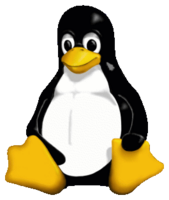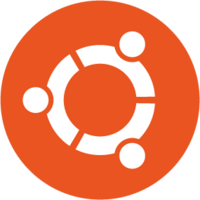Operating Systems
-

AlmaLinux
AlmaLinux is a RHEL clone and is direct replacement for CentOS Linux, providing a free alternative to Red Hat's commercial product.
Find out more -

CentOS
CentOS is an enterprise grade Linux Operating System built using the same source code as Red Hat Enterprise Linux to provide a free alternative to Red Hat's commercial product.
Find out more -

Debian
Debian is one of the oldest Linux distributions available. It has a reputation for rock solid stability, reliability and a powerful, easy to use software management system and a reliable and predictable upgrade process from one major release to the next.
Find out more -
FreeBSD
FreeBSD is the most widely used BSD-derived operating system. FreeBSD is regarded as a reliable, robust operating system. It was used as the original base for Mac OS X and powers the Netflix content delivery network.
Find out more -

Linux
Linux is now by far the most widely used server Operating System on the web, scaling from mobile phones to powering over 90% of the world's top 100 supercomputers and has superseded traditional UNIX and Microsoft Windows alike. Linux is supported and cooperatively developed by many the world's major technology and hardware companies including IBM, Intel, AMD, Google and Microsoft as well as spawning its own such as Red Hat and Canonical. As a result, Linux is now the commodity OS of choice, forming the basis of many free and commercially developed systems. The strength of Linux lies in its versatility, reliability, security and accessibility making it the ideal platform for cloud applications, web and email hosting, security products, virtualisation and as the basis for intelligent appliance products.
Find out more -

OpenBSD
OpenBSD is a unix-like operating system. The project is widely known for its focus on security, code quality and good documentation. OpenBSD includes a number of security features absent or optional in other operating systems. OpenBSD's strong networking stack, HA and the pf packet filter suit it for network infrastructure use and enhanced security lends itself to the security industry.
Find out more -

Red Hat Enterprise Linux
Red Hat Enterprise Linux is the leading platform for enterprise-class open source computing. It is sold on a per system annual subscription basis that provides continuous value (updates, upgrades, support, maintenance, certification ecosystem, etc.) Red Hat Enterprise Linux couples the innovation of open source technology and the stability of a true enterprise-class platform.
Find out more -

Rocky Linux
Rocky Linux is based on Red Hat Enterprise Linux and is seen as the natural successor to CentOS Linux, providing a free alternative to Red Hat's commercial product.
Find out more -

Ubuntu
Ubuntu is the most popular version of Linux for cloud computing and on the desktop having built on top of Debian and added its own focus on a smooth desktop experience and cloud optimisations.
Find out more -
Unix
Unix is a multi tasking, multi user computer operating system originally developed in 1969 by a group of AT&T employees at Bell Labs. During the late 1970s and early 1980s, the influence of Unix in academic circles led to large-scale adoption of Unix by commercial startups, the most notable of which are Solaris, HP-UX and AIX. In addition to those already mentioned, Unix-like operating systems such as MINIX, Linux and BSD descendants (FreeBSD, NetBSD, OpenBSD and DragonFly BSD) are commonly encountered. Unix operating systems are widely used in servers, workstations, and mobile devices.
Find out more